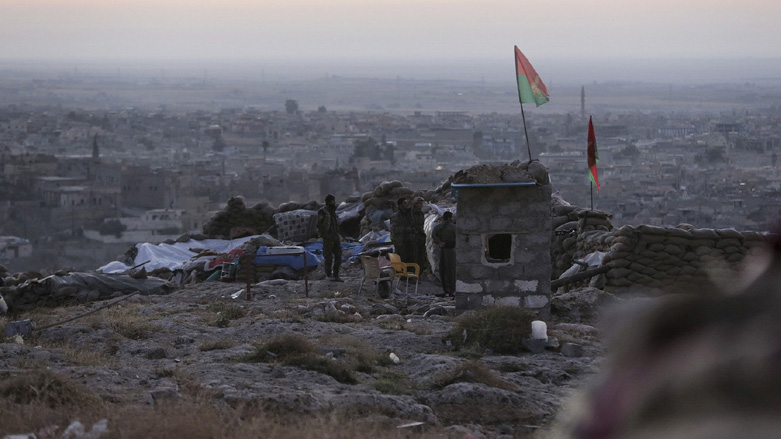Iraq deploys 3 army brigades to Sinjar, new clashes with Yezidi fighters affiliated to PKK

ERBIL (Kurdistan 24) – Clashes erupted once more between the Iraqi army and a Yezidi (Ezidi) militia group affiliated to the Kurdistan Workers' Party (PKK) in Sinjar (Shingal) on Tuesday, days after an initial confrontation that resulted in casualties on both sides.
It is the second showdown involving the two forces after Sunday’s incident in Shingal’s Snuny district.
“The Iraqi army deployed three brigades from Mosul to Bab Shilo area in Shingal, asking YBS [Sinjar Resistance Units] to evacuate and hand over their bases to the Iraqi army,” a commander of YBS militia group told Kurdistan 24 on Tuesday on condition of anonymity.
“YBS in no way agreed to obey Iraqi army’s orders. Therefore, clashes erupted between us again.”
Skirmishes also broke out between the two in the Om Diban area located on the Syrian border. An Iraqi soldier was killed and an army military vehicle was also burnt, local security told Kurdistan 24.
“Many were injured from both sides.”
A commander from the Iraqi federal police in Nineveh Province who declined to be identified publicly explained to Kurdistan 24 that the YBS fighters did not abide by the Iraqi army’s instruction and warning which was given to them on Sunday. Therefore, the three brigades attacked the PKK-backed group's bases.
The YBS was established after the occupation of Shingal by the Islamic State in Aug. 2014 and is widely believed to be an armed force of, or at least under the considerable influence of, the PKK in Shingal. Reports also claim the group has been financially supported by the Hashd al-Shaabi militias, also known as Popular Mobilization Forces (PMF).
The PKK has been fighting a decades-long insurgency with Ankara over Kurdish rights and self-rule. Along with any allied armed groups, the PKK is considered by Turkey to be a terrorist organization and Ankara has vowed to take the fight against them wherever it might lead.
This is the latest development in the Yezidi (Ezidi)-majority area of Sinjar, which Turkey has previously bombarded on multiple occasions reportedly targeting the PKK positions—operations that may be violating Iraq’s sovereignty as Baghdad has stated that it played no role in coordinating with Ankara on the strikes.
Following the emergence of the Islamic State in Iraq in 2014, the Ezidi religious minority suffered heavily at the hands of the jihadist group, including mass executions.
When the group overran Shingal, it led to the displacement of hundreds of thousands of Ezidis, who the Islamic State considers heretics. Militants subjected Ezidi women and girls to sexual slavery, kidnapped children, forced religious conversions, executed scores of men, and abused, sold, and trafficked women across areas they controlled in Iraq and Syria.
Editing by John J. Catherine
